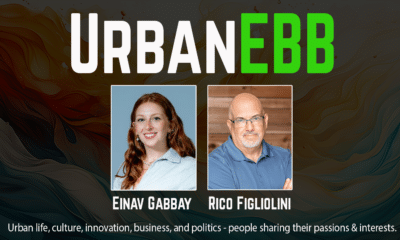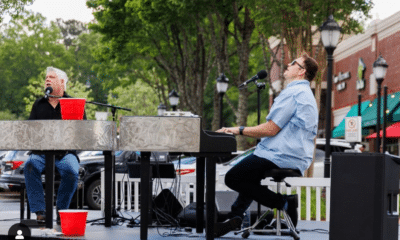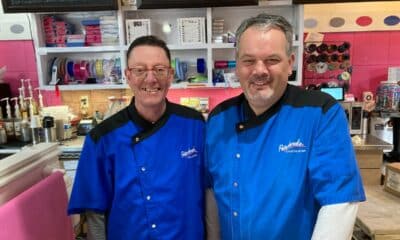City Government
Prime Lunchtime with Brian Johnson, City Manager
Published
5 years agoon
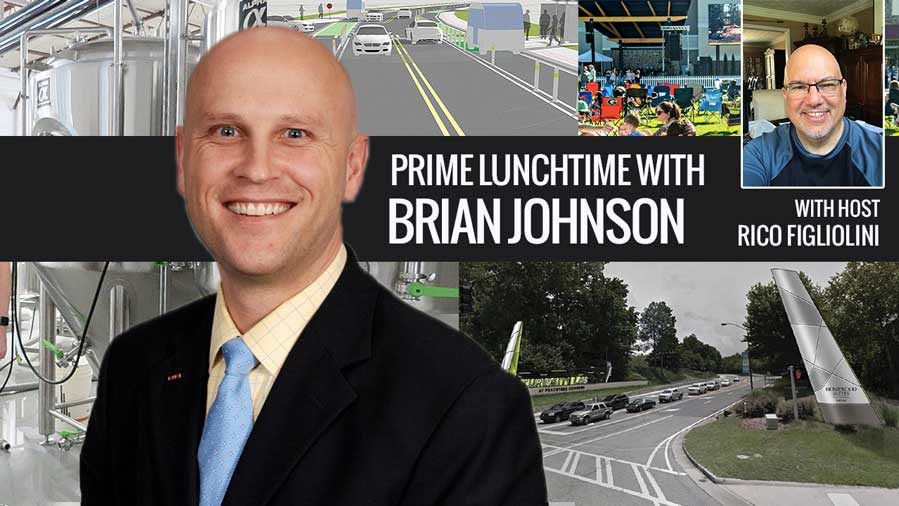
In this episode of Prime Lunchtime, Rico and City Manager, Brian Johnson, discuss the upcoming Smart City Expo and the role that Peachtree Corners will contribute. Brian gives some sneak peeks into the incredible technology that will be demonstrated and accessible during the event, and its implications for the future of smart cities all over the world. Additionally, they discuss developments around the city such as the finishing of the roundabout, new apartment developments at the river corridor, Willie Degel’s new Uncle Jack’s Meathouse, and more.
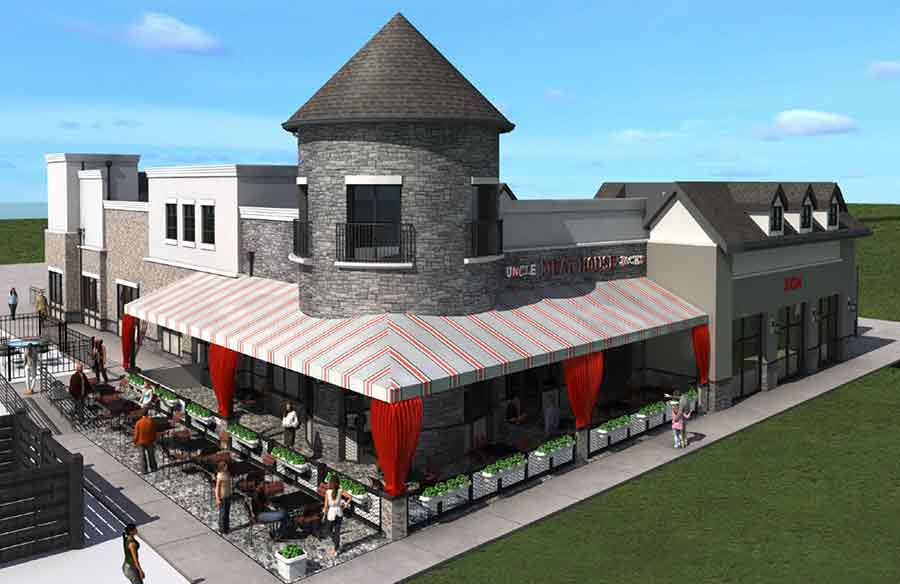
Resources
Smart City Expo Atlanta: https://smartcityexpoatlanta.com/
Podcast Transcript
Rico [01:02 ]: Hey guys, this is Rico Figliolini, host of Peachtree Corners Life, and this is podcast with Brian Johnson is Prime Lunchtime with City Manager.
Brian [01:11 ]: How are you?
Rico [01:12 ]: Good. Just came off another podcast this morning – a videochat with Aarti Tandon, the CEO of the Smart City Expo, which was eye-opening, the stuff that’s going on with the exhibit. 250 speakers, tracks they have, the stuff that we’re doing that’s part of that all. I just want to, before we get there – we are at the Atlanta Tech Park podcast studios, and they’re a sponsor of our show. I want to say thank you to them. It’s a great podcast studio here in Technology Park in the city of Peachtree Corners. And also to say thank you to GMC Primary Care, Gwinnett Medical. They are a sponsor of the family podcasts that I do, including Capitalist Sage with Karl Barham, and I appreciate you guys and thank you for being part of this. So let’s get into what’s going on cause the road’s being built. The pavement’s down. Time is running towards the September 11th date, so tell us what’s going on, Brian, with this whole autonomous vehicle Curiosity Lab at Peachtree Corners.
Brian [02:21 ]: Well, if you’ve been in Tech Park the last couple days, couple weeks, you would notice that, yeah, there’s something going on. So two weeks from yesterday will be our grand opening and ribbon cutting of Curiosity Lab. The, I guess, most visually appealing and easy aspect of Curiosity would be the autonomous vehicle test track, which is being put in on the – on a 1.5 mile section of Technology Park. And right now, as we were driving over here, they’re starting to stripe the lanes, putting all the flexible bollards to separate the, you know, autonomous vehicle, the test and demo lanes from the two inside lanes for the motor and public to use, because, you know, we still have 7500 jobs that are just in Tech Park and about 1000 people are residing here inside of Tech Park. So, we’ve got a lot of people who use it, which is what makes it unique, and yes we are almost at the point where we can cut the ribbon, say, ‘Alright, it’s time to fire this thing up’.
Rico [03:35 ]: Is the control room part of that, too?
Brian [03:37 ]: It is. So, we’ve got this 1.5 mile liner laboratory. Living linear laboratory. And of course, again, you know, you’ve got this test track in the roadway, but also, you’ve got a lot – all the technology infrastructure that is necessary to do any testing with it, mobility for the Smart City space. By that, I mean, it’s not gonna be just about autonomous vehicles – there’s going to be a lot of other testing, things like, in the mobility space for instance, things like connected vehicles. Testing the vehicles’ ability to communicate with, say, light poles, traffic signals, other vehicles, cyclists, pedestrians, a lot of testing in there. There’s testing and everything from infotainment systems to Smart City testing of, you know, digital message boards, street lights to reflectors in the road that change color if there’s hazards up ahead. There’s cybersecurity testing that you can do here because we’re creating the right of way of the future. You know, a street that everything in the street can communicate with each other. The cars can talk to each other, to the pedestrian, the cyclists, the light poles and when you do that, you create all those breach points for somebody to use, to hack, and so there’s some interest some companies are coming in here to test on ways to either protect agains that breach or try to find weaknesses in the system. So, I mean, you know, the sky’s the limit, but it’s not just about mobility. It’s about the whole thing.
Rico [05:23 ]: That’s interesting. Apple this way – Apple is a closed circuit, right? Because this way, there’s only one breach you can have through this system.
Brian [05:29 ]: And actually, to that point, when you talked about the network operations here, all that technology that we’re putting in is on one fiber network. A closed system. Hargray fiber is providing the backbone to this. All this technology including the, you know, the macro and the mini macro, 5G antennas that are part of this. And that’s put in are through fiber networks that’s closed, so it’s not part of the city’s greater fiber system so we can kind of control it in a real world. You know, I was just talking about cybersecurity in a testing component, but we’re gonna have real world data being created, and we don’t want things like, you know, industrial espionage where some auto company steals data from another one. Or we don’t want data to be corrupted, we don’t want people to be able to, you know, begin to hack into the traffic signal that we’re putting in and change the light when it’s not supposed to be. I mean, so, we have a higher degree of controllability and in an inherently uncontrollable environment.
Rico [06:41 ]: Yeah. Do you, do you get any demand or require from developers that come in the same type of – type of security? Because I mean, apps work within that could be a breach point also right?
Brian [06:55 ]: They can. So most of what we’re doing right now is – they’re bringing their devices, but they’re still having to use our software in our system to do it. And so that allows us to be able to make statements about the data created from this, such that we can say we will be in a position where we can respect or honor a company’s proprietary concerns if they come in and they say, ‘Hey for this particular test, we don’t want it to be public.’ We’re – and be in a position where we control that, say ‘Sure’. Conversely, we’ll be in a position where we’re sharing this data and letting others have it. Because it’s creating – there’s no better data to get compiled – the data that’s created in the real world because, inherently, as humans, we do all sorts of things that are unique, and so the data collected in a controlled environment is only so useful. And again, that’s one of the many reasons why this is, you know, a unique asset because we’re not a closed course, we’re a living laboratory. So we took a public street that we’re keeping public, and we’re also allowing testing within that in a safe, you know, manageable manner.
Rico [08:16 ]: Are you going to – so September 11th is the day – is the first day of the Smart City Expo Atlanta. And we have the – and probably the only – offsite demo that’s being done. So they’re gonna bus in attendees that are going to be coming to that. Are you – what demonstrative aspects will we have?
Brian [08:39 ]: So, we’re kind of combining two things. You know, it is the grand opening and ribbon cutting. So at the beginning of it, we’re gonna have a short, little, kind of grand opening. You know, run of show. You are talking about, we’re going to have the Lieutenant Governor speak, we’re gonna have – and the mayor. And we’re gonna have the President of Sprint speak, and the executive vice president for Georgia Power. Those are the two companies, corporate entities, that are gonna have a short role in that because, as companies, they’ve invested in Curiosity Lab, and it’s going to be – it is their laboratory also. So they’re partners with us, but partners in the sense of – they’re gonna be using the lab on an ongoing basis, because it’s kind of like, to a degree, their lab also. Georgia Power’s doing Smart City testing and demo, and of course Sprint’s doing 5G utilization and testing. So, when we get done with that, we’re gonna have a ribbon-cutting. The ribbon is going to be flown up the track by drones. And so the drones will come up to the dignitaries that are gonna be standing there to cut the ribbon, and they will hover while the ribbon is cut.
Rico [09:57 ]: Oh that’s cool.
Brian [10:00 ]: So then, we’re gonna transition from there into – into a couple of active demos. And by that, I mean, they’re demos that can be done in front of the crowd. In front of the tents and the chairs that are set up underneath it. And there’ll be three types. One will be a fully autonomous show. And it’s built by local motors – it’s called Ollie. So it is a driverless shuttle, and we’re gonna get a couple of, you know, the dignitaries to get on the shuttle with the CEO of Local Motors. It’s gonna go around the parking lot in front of City Hall, the parking lot in between the track and in front of City Hall. And so, you’ll be able to see how that technology works, because again, there’s nobody – there’s no steering wheel in it, there’s nobody driving it – it’s fully autonomous. So we’ll have a demonstration of that. We’ll then do a demonstration of an autonomous drone delivering a package. And so we’ll have a drone bring in a package, and it’ll demonstrate how it’ll get to a delivery box. And hover and drop down and drop that box – drop the package into the delivery box. And then we’re gonna have a demo there, and the last demo with everyone sitting there will be a tele-operated e-scooter. By tele-operated means – we al lknow the e-scooter. This company makes essentially training wheels to go on an e-scooter and a camera on the front, and the e-scooter can be activated and driven by a human in a remote location. And you know, we’ve talked about this before – we’ve had tele-operated 18-wheeler, but they can do this with an e-scooter such that they can reposition e-scooters, which is one of the problems that are out there right now, is people leave them wherever.
Rico [11:59 ]: Yeah. Well they’re banning them, as far as making any more.
Brian [12:02 ]: That’s right. There’s no additional – yep. And so they’re controversial because often times it’s the typical, this is why we can’t have nice things because a few people ruin it for everybody else. And so people are kind of being careless with driving them and also leaving them and, you know.
Rico [12:21 ]: So we might see –
Brian [12:23 ]: You’re gonna see a scooter driving down the sidewalk with nobody on it. And so those are the three – those are some of the tech that you’re gonna actually – the attendees are actually gonna be able to see in front of them. Not on a video, not reading about it – we’re actually going to see it. And then we have a bunch of other stuff. So at that point, we’ll basically tell everybody that the formal part is done, and then we’ve got a bunch of other demos. We’ve got a number of cars – KIA is bringing up their concept car – the Habanero. It’s a – it’s an advanced car that’s not in production yet. They’re gonna bring up the Telluride and Stinger also, which are pretty advanced but they are commercially available. We’ve got everything from soft bank robotics, and Sprint has some robots that are gonna be brought out. Then we’ve got autonomous lawn mowers – somebody called Green Seeds is going to bring out those. So then you can go to the different booths and you can – you know, they’ve got another robot that has a follower behavior. In other words, it can link it to a person to follow, and it’ll follow that person even through a crowd, where it knows how to avoid people but still keep its eye on the person. They use micropositioning. So it positions itself down to the, you know, centimeter, millimeter, so you can really navigate complicated environments because its GPS location is so accurate.
Rico [14:13 ]: So that’s almost like it will be an assistant. Almost like Alexa following you.
Brian [14:17 ]: That’s right. But even in complicated environments. SO those are the demos that are being set up which you can walk up to it and they’ll show you.
Rico [14:25 ]: Wow. A lot of interesting –
Brian [14:27 ]: And we’ve got a lot of interesting stuff that’s not quite the edge of technology, but there’s a company called Wreath that’s coming and showing off their mobile kitchen. In which their concept is to take a shipping container and put a kitchen in it, and put it at a location, and it’s not for use by anybody to walk up and order. It’s all for the food delivery like Uber Eats. And these kitchens can cook, you know. I think I’ve seen as many as five different menus from known restaurants. And you can, like, order from a Chili’s menu or an Applebee’s menu or an iHop menu – whatever, and it can do all of those. But then it’s delivered through one of the delivery. So, you know, that’s not necessarily what you necessarily think about just cutting mobility, but it’s unique and so we’re gonna have a lot of stuff from people. Let’s see – a lot of people are interested. We’ve – we at least have seven members of the consulate corps of Atlanta. You know, countries that have consulates in the metro-land area. The consul generals from those consulates are gonna be coming up because they’re interested in the space. Or there’s companies from these countries that are interested.
Rico [15:54 ]: So you’ll have your own little exhibit going on.
Brian [15:56 ]: Yes. There’ll be kind of an exhibition both inside and outside. Inside City Hall we’ve got some of our multi-use space that will be set up for some of these companies to kind of show off their stuff. And outside there’ll be some stuff, too. And so, yeah. It’s gonna be – and that’s the kickoff, and then everybody who’s part of the conference will go down, and at 1:00 it starts down at the Georgia World Congress Center. And we’ll have space in the exhibition hall, and we’re gonna show off the mini model we had made. It will be for the event. So –
Rico [16:36 ]: And you have a sign that says – the signage at the beginning at 141 and Technology parkway is gonna –
Brian [16:46 ]: Yes. So you know – part of the – now, you know, we’re – I would have loved to have about 45-60 more days to finish everything before the event. We didn’t have a choice. We didn’t pick the dates. You know, of course, I don’t know if necessarily the city of Atlanta or the metro area that was part of bidding to get this conference – I don’t know if they necessarily had any say int he dates. But when it was announced that there was gonna be a Smart City conference here, we knew we had an asset that was unique, and they said yes to our partner. A little earlier than I would like, so there’s gonna be parts of the track that are not complete. Like some of the signage. But we are trying to start with the signage, the gateway signage at Tech Park 141. And then bring it up just past City Hall and make sure that’s all done. Because that’s how most of the people will drive in. And so they’ll be able to see that card, and then we’ll continue with the rest of it.
Rico [17:49 ]: It’s exciting to get that, I’m sure. I know from what Aarti was telling me from the earlier podcast that there’s so much going on at the Expo that I can’t wait to visit that, to see that. It’s a lot. And especially I’m sure even the after-hours and that stuff.
Brian [18:03 ]: Yes. There’s a number of after-hours. Because you’ve got some of these companies that are coming in for this – a lot of them are from countries outside of North America, and the reason they’re interested is because it’s an opportunity. This is the first Smart City Expo in North America.
Rico [18:22 ]: In the US for sure, because I think Mexico –
Brian [18:25 ]: Oh did? Okay, so it’s the US. And so, it’s, you know, it’s a unique opportunity for companies who are not based here to have a presence here to show off what they’re doing to get into this market. And so there’s a lot of after hour stuff of companies having some people come in and do some special things.
Rico [18:42 ]: That’ll be interesting. There’s also a lot of CIOs – Chief Information Officers –
Brian [18:47 ]: And CTOs.
Rico [18:49 ]: Yeah, CTOs from all the cities coming in, so that’ll be fun. I mean, people who couldn’t get to Barcelona coming to Atlanta instead because it’s within their budget.
Brian [19:00 ]: Because, yeah. I’m speaking at the conference on Friday, so you know, there’s a lot of interesting panel discussions. Classes on all sorts of stuff. So yeah, on one with the city manager of Carlsbad, California. Doing some interesting things with 5G.
Rico [19:19 ]: So you get to talk to him too, maybe.
Brian [19:23 ]: I mean, yeah. We’re always interested in – delegation from the city of San Diego came yesterday to see what we were doing cause they’re doing some stuff. But, you know, we’re always learning from each other. But I think it’s fair to say that what we’re creating here, if you consider all the unique aspects has not been created anywhere in the world. Because, first, we’re a living lab, so we’re not competing with the closed laboratories or courses. But we have 5G now. This building has 5G right now. So, and the others will catch up soon, but we have it right now. We’re not charging for the use of the facility. So it’s not a pay to play. We are not requiring intellectual property rights of any sort on anything that’s been created out of testing here. We’re respecting times where somebody has proprietary information and they want upwards – in some cases if you do it on public anything, it’s all public regardless. And then, the last two things that make us really unique beyond what I just said is – there’s only one governmental entity that you have to deal with. A lot of – you’ve got county, state, feds, you know – even the – Georgia has a rural interstate version that’s called the Reg. You know, 18 mile section of I-85 from the Alabama state line to West Point, Georgia. But everything they do, they have to get permission from Georgia GOT and the federal highway. because it’s not their roadway. So we are the single entity, so we can move quick. We can say yes. You know, we can cut up the road and put in, you know, testing panels if we want them. We can do whatever we want because it’s our road. and then the last thing, which I think is also really makes us unique is – cities throughout the country have to insure their roadway. You know, general liability insurance for roadway. Because stuff happens – sometimes, a city’s gotta defend itself. In some cases, the city has some culpability. It could be that something happened to the road. There’s a sinkhole and the car goes in, and we let it. So whatever, we’ve got to have liability coverage. What you don’t see is, when you have a public street, I can’t limit access to it. I have an insurer, no insurance company will insure that public street when you include testing of advanced technologies. As soon as you try to do that, they’re like, ‘woah, woah, woah, no no no. We’re not going to want that.’ We got our insurance. We have insurance, and we got it through *insurance company*. That’ll, you know, are known for being in a position to insure basically anybody. And when they tell us, aside from us having never heard of any city doing this, when we were talking to the carriers about what they’re all like, ‘no, no, no.’ And a lot of reason is – because of the drive – when there was a cybersecurity component to it. They don’t like to have to insure any data created from use of this public. And so that was one. But the main one was, the advanced vehicle testing. Especially when you got it to the drivers. Because, about 98.7% of automobile accidents are driver error. There’s some driver or there’s some component – statistically, so actuaries can handle that because they have, you know, a century of historical data to run basics on. When you remove a component that is 99% at fault from the equation, they get real uncomfortable. Like, ‘Okay, wait a second. How do we even forecast what our exposure here is? Because who’s going to be to blame?’
Rico [24:00 ]: Because they don’t have history.
Brian [24:03 ]: Correct! Is it going to be the OM that made the vehicle. Is it going to be the software in the vehicle? Is it going to be the components that comprise it? Is it gonna be the wireless signal that they’re using to run – I mean who’s to blame? And so Lloyd stepped up and said, based on, you know, the environment we’ve created, the, you know, some of the safety measures we took to make, you know, our living lab to be – to have a higher degree of controllability that you normally see with this kind of testing. They said yes – we will insure it. So we are – again, I can’t. I’m not sure anybody else has coverage over a public street that includes that. So any of the insurance carriers that we talked to in the US – we’re US based – would say, ‘We’ll insure the city. We’re gonna carve that 1.5 miles out.” But we found one that did –
Rico [25:03 ]: It’s – that’s interesting. I mean, you – the city’s in a position to be able to actually create legislation that can take care of that to a degree. Within city limits. To say, you can have autonomous vehicles. These are the parameters. Of course, those laws could be tested at some point, right?
Brian [25:24 ]: Oh, they always are.
Rico [25:27 ]: But this is a great opportunity for a city that’s doing this in a living environment to also begin investigating, ‘How can we legislate this in our city?’
Brian [25:38 ]: Well, so there’s a component of all of this. These companies are interested in being a part of something that’s going to create the new normal in that area. In the insurance industry, there’s a degree of that we got. The company’s like, ‘Look, we’ll do this. Here’s our -‘ But we’re also interested in watching how this plays out. Because, you know, I think they’re seeing the long term play. Which is – look, every city’s gonna have this at some point. There’s gonna be driverless and human-driven on the public road at the same time at some point. So you gotta get in at some point. Like, look – the city, which has created this really easy environment for us to get invovled in, has done this really unique thing. Why not now? Let’s go ahead and get in on this. So there’s a degree of that. You know, the other thing too is, the state of Georgia – whether many of those involved knew it or not, created a very friendly environment for the testing autonomous vehicles. Because there – most states require there to be a human in the vehicle even if it’s driverless. But Georgia is one that does not. Now, it does require, if it’s driverless, if something goes wrong, it’s got the operator of the vehicle has got to be able to take control of the vehicle. That could either be a tele-operated human, or like a kill switch. Where it can just shut it down and stop it, and you can go out to the thing and take it over. A lot of states do not.
Rico [27:16 ]: Right, and that legislation just passed.
Brian [27:19 ]: It was, just a couple of years ago. So we’re a very friendly state when it comes to the testing in this. So, the city, being in the Georgia municipality, has benefitted from that foresight. So there were some people who thought of that a couple years ago. Maybe there were some legislators who didn’t realize what they were doing, but we put ourselves to a point where I think we can really attract companies that are in this space because the state’s kind of friendly to it. We’ve got a city that’s friendly to it. A city that’s controlling the entire right of way to this. It’s easy – there’s not a lot of bureaucratic hurdles. So, given the amount of partners we have, the amount of interest, I don’t really have to say this. It’s selling itself.
Rico [28:03 ]: Oh, for sure. I gotta believe. And things with this expo and the exposure there, we could probably have the news show up. Are you excited by any particular exhibit or company showing there that you’ve heard of that you got to see? That you got to visit for the expo?
Brian [28:24 ]: Well, you know, no. Only because all of the ones that I was excited are actually coming up to our place. So there’s some that we’ve got some meetings, and afterwards we’re gonna talk. I’m sure there’s some that I don’t know of yet, but all the ones that we were interested – you know, we’re not necessarily shy when it comes to companies doing something where – if they don’t know about us, let’s send them some stuff. Usually that’s enough for them to say, ‘Um yeah, we would like to come out and look or talk and so’. Most of those that are coming in and inviting up – yeah.
Rico [29:02 ]: I can’t wait. September 11th, 12th and 13th. And the morning of the 11th we’ll be here. That’s great. So that’s happening. It’s gonna be for the next two years, so we may go back.
Brian [29:15 ]: For the Smart City Expo.
Rico [29:17 ]: So that’s the biggest thing to talk about.
Brian [29:24 ]: Well right now, like you said, the city is still running.
Rico [29:27 ]: There’s several things to talk about also – other things that are happening. The – I guess, let’s go down the list a little bit. This way people can be informed a little bit. The roundabout is going to be finished at some point.
Brian [29:41 ]: In the next 72 hours, maybe? I mean, for the traffic stuff that – it’s all the paving stuff.
Rico [29:50 ]: So it’s raised a little bit? Because that center part looked a little hard to me.
Brian [29:54 ]: Well, inside of the median still have work. We’ve gotta fill some of them in, we’ve gotta do some stuff. But I’m talking about, when it comes to the traffic. Cause you know, inside of the curbs that are poured, that’ll not affect traffic. but the striping, the paving’s done, the curbs are all in, the striping’s gonna be happening, maybe happening right now. Sometimes, you know, the weather – I don’t know if they’re doing that at night either. But anyway, so it’ll only be inside filling in those things, you know, go from there. Kind of the last accouturements at the end to make it pretty. And the lines.
Rico [30:37 ]: And the lines – people are a little confused, do they have to get on the lane – there’s actually two lanes.
Brian [30:45 ]: Well, yes. Because if you need to go more than halfway around, you would stay on the inner lane until you get to – but yeah, the striping will handle that. That’ll make it so it’s not so confusing.
Rico [30:58 ]: That’s what I was thinking. But some people just can’t get it straight. City council handled a few things. Let’s just go into that a little bit. I know, well, at least to let people know. I know Tipsy Nail Salon finally got their alcoholic beverage license approved, I think?
Brian [31:13 ]: They did. Now theirs is for the, um, what is it called?
Rico [31:19 ]: The retail packaging.
Brian [31:22 ]: Yeah. So that one – yeah, retail package in one license. So that’s the one where you can – under that permit is where you can have wine tasting or – it limits the amount you can drink in a time period. Because it’s kind of like for, you know, like a wine store has. You can taste wine. It’s a limit so you can’t go in there and taste so long.
Rico [31:50 ]: But they can have sort of a happy hour, when you go and get your nails done.
Brian [31:54 ]: Yes. So while you’re there – but again, state law sets how much alcohol you can have in periods of time. And they apply to that yes, they can qualify for that.
Rico [32:05 ]: Okay, so, and then, I believe the mechanics bill – the town has developed on that – there was a second read of consideration on that?
Brian [32:13 ]: But the applicant pulled. The applicant pulled because there were some environmental, I guess challenges that required them to adjust the site plan. Actually, they’re making the project a little bit smaller because it was – it was cost-prohibitive for them to get into certain wetlands over there. So I think they’re pulling it back, so – because of that, they gotta go back to planning commission to start it all over.
Rico [32:46 ]: So it sounds like the wetlands – they don’t want to clean it out.
Brian [32:51 ]: No, it wasn’t about that – I’ve not heard anything about pollution. But wetlands are expensive in two regards, if it’s an actual wetland. First of all, you’ve gotta get permission. There’s a lot of regulatory stuff to fill in a wetland. Sometimes you’ve gotta buy wetland credit sell square, you know, things like that. So environmentally it’s difficult because, technically, the aggregate amount of wetlands in Georgia has to stay the same. So if you fill in wetlands here, somewhere else you’ve gotta create them.
Rico [33:23 ]: It’s an impervious surface also.
Brian [33:27 ]: Yeah, well that is – even though it’s kind of a separate issue, even though they’re both storm water related. So wetlands can be a lot of cost on the bureaucracy. And two, you also have to – if you’re filling in wetlands, you’ve gotta bring in stuff and sometimes you’ve gotta dry pilings in the ground because the soil has not been compacted long enough. And so often times it just gets cost-prohibitive for somebody.
Rico [33:53 ]: SO they’re gonna take their time and come back.
Brian [33:55 ]: Well yeah, my understanding is they’re already on the planning commission agenda, but because they’re redoing their site plan, there’s a material change, they’ve gotta start the process over. So they pulled their application to start over.
Rico [34:10 ]: Okay, cool. The – going down the list of the city council, the definitions of nuisance of urban camping. So, two parts to that, right? One is redefining certain definitions, I guess. Was the second reading consideration in the ordinances. And also there was a second part that was a mandate about specific sections of articles 1-4, really about conflicting ordinances, I guess. How to deal with unsafe buildings, drugs, sexual abuse in buildings and stuff like that.
Brian [34:41 ]: So, the urban camping definition – well so, we went into our code section and had to update a lot of stuff. And so, when attorneys went through and did this, they identified some things that were in conflict with stuff, state law had changed in certain things that were now in conflict. We needed to bring it up, there have been court cases that kind of – so it’s bringing a lot of stuff up to code. The main things, after that -we had to change some terms, make things accurate as far as state law goes. Then, we had some things that had not been addressed that we needed to. Like, we needed ot have a prohibition against standing water in certain things. Some people were having pools and stuff that they weren’t keeping clean, it was breeding mosquitoes. So there are some things like that. And then urban camping is one which we only have to address as we started to own public property – town green. And so those are – that was what drove these. It’s just pretty typical for cities to go through code every now and then and kind of say, ‘Alright, we’re gonna clean it up some of this stuff.’
Rico [35:58 ]: From experience also, you realize you may need changes because of the way life goes, right? Then, there was also the town center. Okay, so I did an interview with Willie Degel from Uncle Jack’s Steakhouse, Meathouse. It’s actually Steakhouse in New York, Meat house here. So they requested some changes to their elevation plans. The building’s actually gonna be a little bigger, I guess? There was the original plan for the Xfinity –
Brian [36:29 ]: Well, I don’t think the inside of the building’s gonna be bigger. I think there’s just gonna be more outdoor seating so that Willie can actually have more people. Which is really what required him to change some of the – so, you know, Fuqua Development which is our private partner with the Town Center development – they owned a building Willie’s going to lease. So they’re the ones that actually have to petition the city because they’re the owner of the building. And they’ve had to work through with him to get the facade to look the way that he wants his branded Uncle Jack’s Meathouse. and that required them to come back.
Rico [37:12 ]: He was telling me a little bit about the New York – they actually have a Bootleg entranceway downstairs, you know, that he brought through the bathroom to get to the safe. They open the slot, they let you in – a speakeasy. It’s interesting, only in New York type of deal, experience. And that’s what he’s looking for, experience.
Brian [37:34 ]: Well, you know, there’s one here near the energy center, an Uncle Jack’s Meathouse, right. And I’ve been to it. They do a good job in creating an ambience that’s unique. And so yes. We’re looking forward to it. It’s going to be – it was an experience beyond just the food. She did a good job up there, it’s a little bit – that one was a renovation of an existing one, so, we’re looking forward to it.
Rico [38:07 ]: Yeah, so am I. This is a show, and the food supports our state. He likes –
Brian [38:12 ]: He likes both. And some of the really good chefs, if you want to go to a restaurant – they are good. They realize that it’s a combination of two things that make you – make those places places people wanna go. They have good food. And then also, if you have bad ambience or non descript ambience, you don’t set yourself apart, then people won’t necessarily go either. So he does a good job –
Rico [38:43 ]: I can’t wait to see it. That’ll be spring of 2020. It’s a bit away. Um, Earth Fair. The old Earth Fair, if anyone knows where that is still. There’s new people running it now, but it’s where the shopping center – Marcos – they had an auction there. They’re auctioning off the inside of that store. Organic farmers auction. It wasn’t clear what they were auctioning. It was really the supermarket. Do you know what’s going on there? I hear there’s maybe someone coming in there, but –
Brian [39:18 ]: Well, so what I can say is, it does look appear that the owner of the entire shopping center, you know, the entire development has potentially come to terms with Earth Fair, which was the leasee. And of course they closed it before the lease ran out. So there was some negotiation between the two so that the space would become available again. So there is indications that they’ve worked that out. And Earth Fair is wanting to extricate all of, you know, their old equipment and whatever because, you know, they know that something’s coming in. We do not have anything official as far as who the next one is other than just the owners and, you know, asking a few questions and we’re gonna have something soon.
Rico [40:16 ]: It sounds like also, they’re losing the dry cleaner there too. Again, I’m getting some information from next door which isn’t always the best way – that’s right.
Brian [40:26 ]: It’s potentially, sometimes when this happens, when you would, I guess call the anchor tenant, is changing, you’d have a lot of the ancillary, smaller places that feed off of the big one. You know, good examples of that would be – you can go out, you see a lot of Publix, or if I remember, Kroger or Walgreens had a good relationship with Krogers. So Krogers would build, a Walgreens would go next to it. People were always like, ‘Why?’ Because they felt like they fed off each other well. THere’s examples of that. SO when the anchor tenants change, oftentimes those ancillary ones, you know, change also. Because they may not feed off of the anchor – the next one versus the one they had next door. And so, it wouldn’t surprise me if that s happening because they’re gonna need a C state change there. It’s gonna be kind of a rollover of that space.
Rico [41:33 ]: But it would make sense that, I don’t see another place coming in. And it is the entertainment district over some expensive…Anything special going on in any other parts of the city that we should be aware of?
Brian [41:48 ]: Um, now back to school, that dust is settling. We’ve got the pedestrian bridge will start soon. They’re doing geotechnical soil stuff. We have had some movement on both by certain property developers and by certain property – developers of the property behind Black Walnut and Chase. I think Hotel Indigo and – so both of them have progressed in their behind the scenes stuff on getting through getting certain things from the city. Visor got their market certificate approved by us, ARC recommended us approving it – our council approving it, so. That’s to be developing property within the river corridor – the old Visor property – a lot of it is in the river corridor. So, you know, they’re moving forward. So those two people – it takes, even after they get a rezoning from the city, only after that can they move forward with getting financing and maybe even getting partners who will maybe build things.
Rico [43:12 ]: So the department and the town and the hotel is moving along.
Brian [43:16 ]: Boutique hotel. Yes, there’s movement there, too. Starting to need some information from us, asking about certain things, so those are good signs. Guinnett Medical Center opened there.
Rico [43:30 ]: Yup, shared city primary care. Just next door –
Brian [43:32 ]: The old Apolitos.
Rico [43:35 ]: Yup, completely cleaned it out.
Brian [43:37 ]: So, some of that. We had the qualifying came equipped. So we had four seats that were up for reelection. So it was Lorri Christopher, Phil Sadd, Alex Wright, and Mayor Mason. Three of the four are running unopposed. The only one that has a challenger is Lorri Christopher.
Rico [44:04 ]: She post or at large?
Brian [44:06 ]: She’s at large. And so, we will have an election, but it will only be one of the seats. So that’s significant.
Rico [44:16 ]: Yeah, that is. It shows that a lot of people are happy with them.
Brian [44:20 ]: That’s usually a fair assessment when you’re unopposed. Generally people are like, ‘You know what? They’re doing a good job. We do not need to run against them.’ Not to say that people just pick one, you know, it’s not because – here, you basically could have picked any of them.
Rico [44:35 ]: I guess, yeah. That’s true.
Brian [44:44 ]: Yeah, but I’m saying, you didn’t get that where you live or anything, you know, so it’s just something like a dart board and you don’t know what it lands on. Lorri Christopher –
Rico [44:53 ]: It’s a lot of work to do this, and people don’t understand that. Work sessions, council meetings, and all the stuff beyond that. But people don’t understand the amount of time it takes, it’s commitment to do the job well. To can do the job and not do it well.
Brian [45:11 ]: That’s correct. You could almost be absentee – show up twice a month, but no. There is a lot of stuff. People don’t realize that expectations of – you need to be certain places, representing city places, meeting with people, because you need to learn something or meeting with people because they asked for a meeting with you, even if it’s not. I would say at least half of the services requested from the city are referred to me by council members who, when they met or talked on the phone, told the person, “Well I don’t have the authority. You’ve got to talk to the city manager.” That’s where the – it’s a referral from a council member because – well, people don’t really know, they’re like – there’s this bush that’s growing out into the road and it’s making the sight line hard to see. I want the city to trim it back. And they think, how do I get it done? Call my elected local official. There’s nothing wrong with it all, I’m just saying that it takes their time. Because oftentimes, I need to meet with you to talk about it. They don’t know. So then they meet, they get it done, at the end of it, they’re like, well you know what? That sounds reasonable. However, I need you to talk to the guy that can actually get it done. And so, yeah. It’s a lot of their time. Part of being –
Rico [46:40 ]: Part of being a city rep. We’ve been spending our time here with Brian Johnson, city manager, talking about Smart City Expo that’s coming up September 11, 12 and 13th. Three day expo in the city’s World Congress Center. So feel free to find out more about that at SmartCityExpoAtlanta.com. And if you need your bushes trimmed or something –
Brian [47:05 ]: Come directly to City Hall.
Rico [47:09 ]: You don’t have to go to your city council person. But so much stuff going on. Hopefully, we’ll find out more stuff about the apartment complex and Indigo and Visor property and Earth Fair in the coming months, but I appreciate the time because this is always enlightening. It’s always a good place to hear things online and the forms and stuff like that – it’s always good to know the straight stuff.
Brian [47:37 ]: Well, I can speak on behalf of all the city when the part of our job is to communicate with our residents, and we can try as hard as we want, but we can never get to everybody. So you can never have too many communication mediums, and this one is a great one, so we appreciate you doing it because even if we reach a couple people who don’t, you know, go on our website, aren’t getting our newsletters or whatever, but they heard this, that’s an important part of it. So we appreciate you doing this. It’s a way of educating our citizenry.
Rico [48:12 ]: Well, this is Peachtree Corners Life, we appreciate you being here. Find out more about our post and our other podcasts at LivinginPeachtreeCorners.com. And look for the Peachtree Corners Magazine in October in the first week. It should be in your mailbox. All 18,800 mailboxes. Thanks guys.
Related
City Government
Crime and Safety Concerns Dominate Town Hall Meeting
Published
4 weeks agoon
March 27, 2024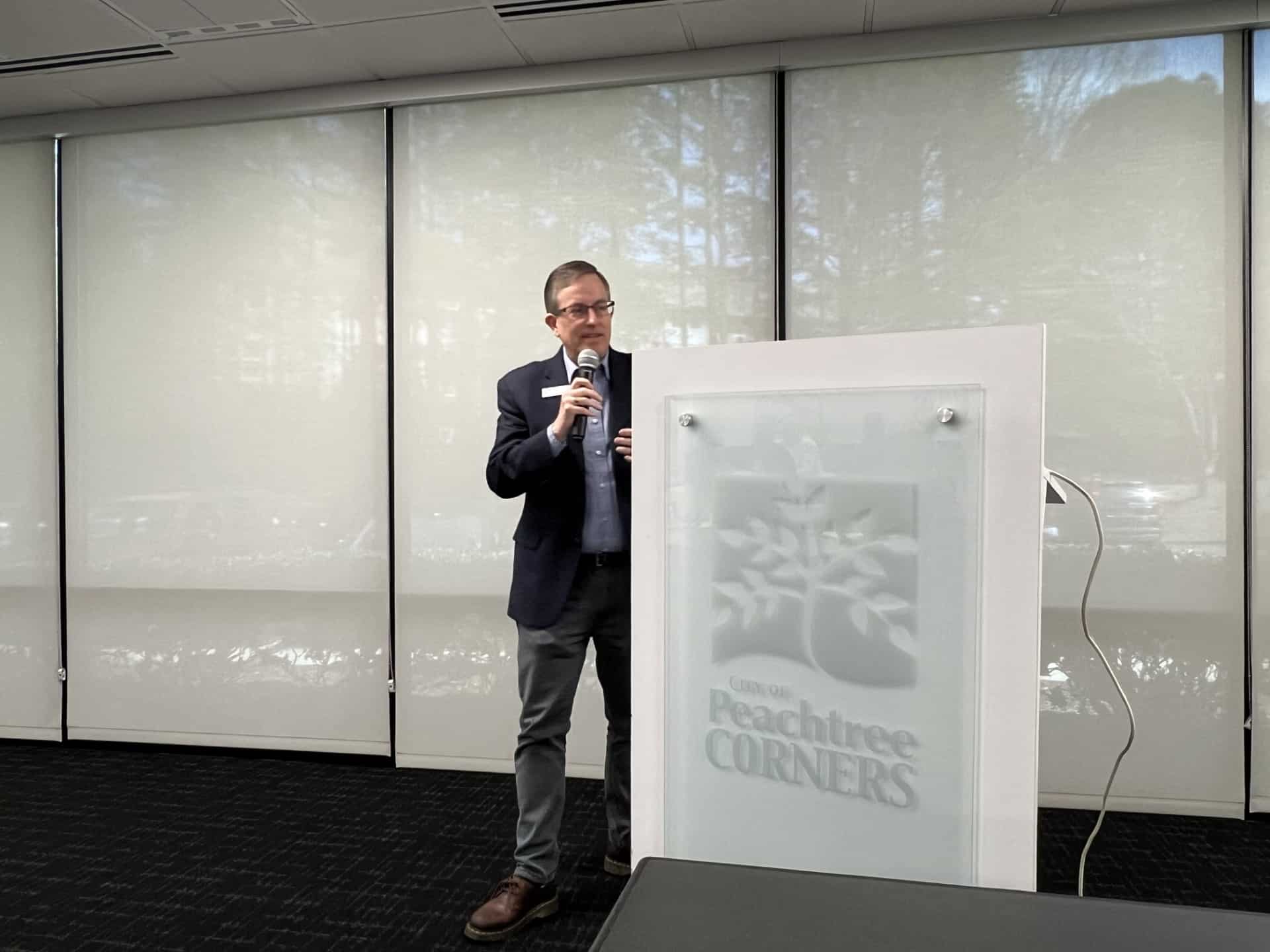
Besides his monthly newsletter, Peachtree Corners City Councilman Eric Christ occasionally hosts town hall meetings to allow constituents to catch up on what’s going on and give him feedback on a variety of issues.
On Sunday, March 24, several dozen residents and stakeholders gathered for updates at City Hall’s Community Chest room. Christ probably expected the gathering to last 90 minutes at the most, but the discussion lasted nearly three hours as he shared information about the Marshal program, development projects, the new dog park, deer and the May 21 primary election.
Cutting down on crime
Probably to nobody’s surprise, crime and public safety took up the bulk of the meeting. Christ wanted the audience to take away that crime in Peachtree Corners is down 25% from pre-pandemic times. He showed a chart with crime rates from 2019 through 2023 that showed a significant drop in crime overall.
- Residential burglaries are down by 48%.
- Thefts are down by 34%.
- Robberies are down by 24%.
“Prior to the pandemic in 2017, 2018 and 2019 we were averaging about 100 total [part one crimes] every month, and that dropped almost by half during the pandemic. Then, in 2021, it went back up a little bit again,” said Christ.
Even though the rate has increased year over year since 2020, it has not returned to pre-COVID levels. However, compared to the previous year, crime has increased by 23%. One solution may be the new City Marshal program that kicked off in November.
Having a relatively small population, the most heinous crimes, such as homicide and aggravated assault, have stayed lower than in many other areas. However, auto thefts, car break-ins, robberies and other property crimes remain somewhat high.
The City Marshal’s involvement
Chief City Marshal Edward Restrepo gave anecdotal evidence that the marshal program is working and will continue to get better because it fills the gaps left between the Gwinnett Police Department and the city’s code enforcement department.
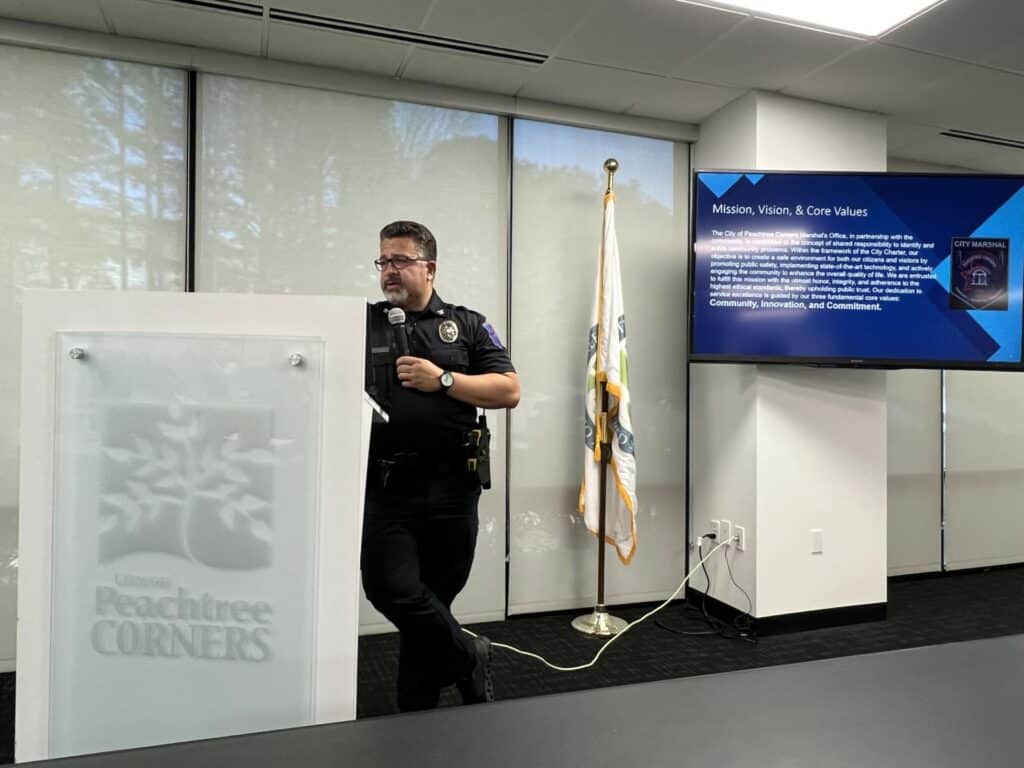
“We had a jewelry store robbery, and about the time we came in, we had started building up the camera registry as well as the integration system of cameras all around the city,” said Restrepo. “With only three of us, we have to rely on technology as much as we can.”
Although the marshals didn’t apprehend the bad guys, their assistance helped other law enforcement officers do their jobs more effectively. Several residents asked if there were plans to increase the marshal force to provide 24-hour, 7-day-a-week service.
The initial cost was around $900,000, said Christ, and maintaining the three officers and an administrative assistant will require about $700,000. Although Peachtree Corners doesn’t levy a property tax, the city’s share of county taxes goes toward that type of expense.
“It’s up to the people of Peachtree Corners if they want to increase the program,” said Christ. “It will come at a price.”
Those in attendance indicated that they thought that would be money well spent. Several said they liked seeing marshals at city-sponsored events because it sent a message that Peachtree Corners is serious about keeping its residents and visitors safe.
Christ said he and the rest of the council would consider that, but he reminded everyone that they should still report crimes to the police.
“I’ve had people tell me that they left a message on the city’s answering machine on a Friday evening and hadn’t heard back,” he said. “I tell them the first step is always to call 911.”
Catch the episode of the UrbanEBB podcast featuring Edward Restrepo from this past January here:
Related
City Government
Ora B. Douglass Swears in as First Black Female City Council Member of Peachtree Corners
Published
3 months agoon
January 20, 2024
After a successful run for the position of Peachtree Corners City Council Post 5 Ora B. Douglass will be sworn in as Peachtree Corners’ first Black female city councilmember on Tuesday, Jan. 23 during the regular City Council meeting.
Upon her retirement, Douglass was elected to the seat vacated by Lorri Christopher, one of two females to serve on the Peachtree Corners City Council, the other was Jeanine Aulbach.
Douglass’ inauguration continues Peachtree Corners’ commitment to diversity and inclusion by not only electing its first woman of color, but by recognizing her status as a military veteran and an advocate for better health care, education and quality of life for all.
She earned her Bachelor of Science degree in nursing from Florida A&M University and earned a Master of Nursing degree at Emory University.
After graduating nursing school, Douglass was commissioned an officer in the U.S. Army Nurse Corps. A veteran with over 13 years of service, she has been stationed in Hawaii and was part of the U.S. Army Reserves.
Douglass has chaired the most recent Veteran’s Day event in Peachtree Corners and looks forward to more efforts to recognize and celebrate the multiple cultures and contributions of the residents.
With her long history of community service in the area, her motto has always been “service first.”
In 2014, she led a group of members in chartering the Psi Omega Omega chapter of Alpha Kappa Alpha Sorority Inc. in Peachtree Corners where she served as president for over four years.
Psi Omega Omega chapter provides community service to Peachtree Corners residents from high school students, senior citizens, entrepreneurs and those in need. In addition, the sorority has partnered with Gwinnett County to keep 1.6 miles of road clean on Peachtree Corners Circle.
Douglass also established The Georgia Pearls of Service Foundation (GPOS), a 501(c)(3) fundraising arm of her chapter and serves currently as president of the foundation.
The GPOS foundation raises funds each year to provide scholarships to high school students and donations to selected community service organizations.
Douglass was appointed International Chair of Community Programming, a committee with representation from the 10 regions of the AKA sorority in providing direction and oversight of the program from 2018 to 2022.
The program defined the framework for Alpha Kappa Alpha’s commitment to service that is embraced by its 300,000 members and over 1,000 chapters located throughout the world.
Douglass and her team partnered with Walgreens and traveled to 36 states including a Native American reservation and to the country of Honduras during the COVID-19 pandemic.
The group administered mammograms, COVID vaccines and provided testing to low-income citizens.
Douglass was born at Atlanta’s Grady Hospital, but was raised in Fort Pierce, Florida. Orphaned at 18 months old, Douglass hasn’t lived a charmed life.
She has worked hard for her accomplishments and knows the importance of a good education, perseverance, dedication and service to all mankind. She promises to utilize these qualities in service to the citizens of Peachtree Corners.
She has worked at numerous hospitals in the Atlanta area including Emory University, and Grady Hospital.
At Northside Hospital she was vice president of Quality and Risk Management. She served as director of Community Home Based Nursing at the Veterans Administration Medical Center in Atlanta and VA Medical Centers in Carrollton and Oakwood where she directed a $10 million grant to provide homecare services to our veterans.
Douglass has practiced progressive clinical, managerial and healthcare administration for over 30 years.
Douglass currently serves on the board of the Fowler YMCA in Peachtree Corners and is also a member of the Peachtree Corners Rotary Club. Douglass enjoys playing pickleball, traveling, cooking, gardening and providing boxes in her yard for Eastern bluebirds to nest each spring.
Douglass is married to Dr. Adrian Douglass. They have four children and three grandchildren. She and her husband are members of Friendship Baptist Church in Duluth.
For more information, go to www.peachtreecornersga.gov.
Click here for more Peachtree Corners City Government news.
Related
Business
The Mayor’s Look at Business and Innovation Successes in 2023
Published
4 months agoon
December 29, 2023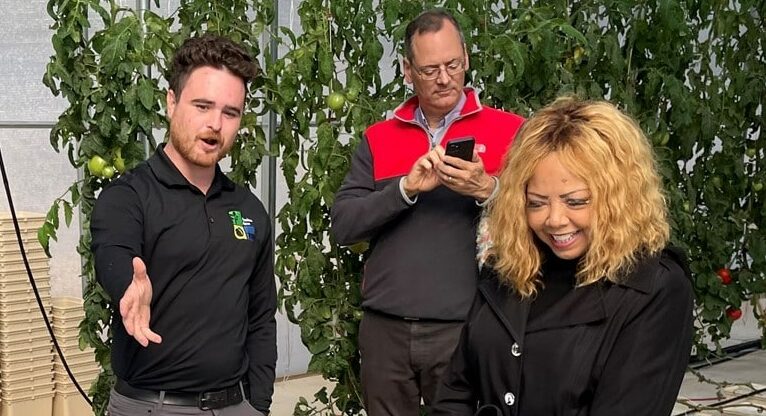
From Peachtree Corners Mayor Mike Mason
As the year comes to a close, it seems like a good time to consider our businesses and say ‘Thank You!’ for helping to ensure our city’s success.
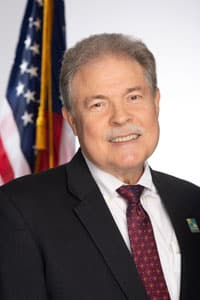
Business and innovation have always been at the heart of who we are as a community. We are a city that grew up organically around Technology Park. So, as we look back at 2023 at some of the many occurrences worth noting, I’d like to say ‘Thank You’ to our businesses, large and small.
And ‘thank you’ to all those entrepreneurs out there who had the courage to start their own businesses and put in the countless hours needed to make them successful. Without your success, we wouldn’t be here. Let’s look at some of the business activity in 2023.
In January, Fricke and Associates, a certified public accounting firm, consolidated two locations, bringing 25 new jobs and a $800,000 capital investment to the City of Peachtree Corners.
The firm signed a 9,000-square-foot office lease at 3500 Parkway Lane to help them better serve Metro Atlanta clients.
Early in the year, NAC International, a nuclear fuel cycle technology and consulting company, signed a deal for 23,000 square feet of space at 2 Sun Court in Peachtree Corners, while T-Mobile partnered with Curiosity Lab for a fun student hackathon the weekend of Feb. 24 to 26.
The city completed its second, five-year Economic Development Plan, this year. The plan guides activity, projects and policy aimed at improving the city’s economic climate.
The city also began its next Comprehensive Planning process, a plan renewed every year that guides development and redevelopment activity in the city.
Unlike other places, these plans don’t sit on a shelf here. We talk with our stakeholders, i.e. YOU, and develop plans to take us where you think we need to go. This is good old-fashioned logic at work, but back to our Year-in-Review.
Last January, city economic development staff visited a company in Peachtree Corners rather unsuspecting of the scope of the operation.
Guardian Sports manufactures products designed to keep people— especially young people—safer while playing sports. It is truly a gem. This Peachtree Corners company is designing and manufacturing sporting equipment worn by youth and high school football teams, college teams, and most recently, mandated by the NFL.
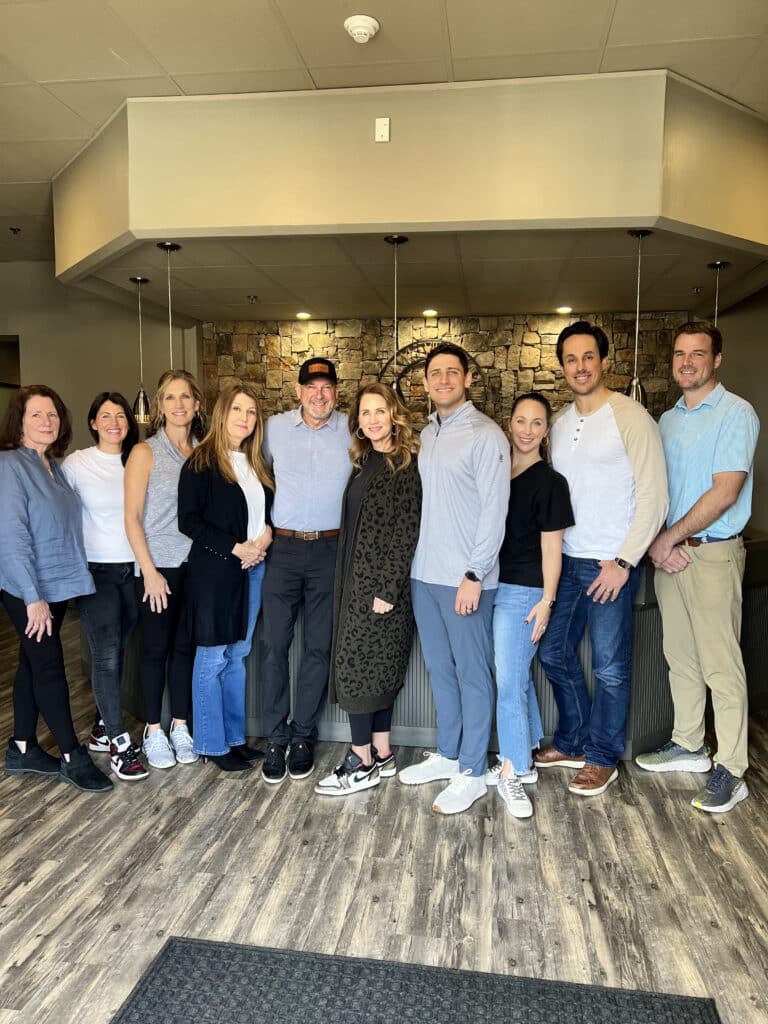
The company’s flagship product is the Guardian Cap, which was created to advance the standard football helmet by dispersing some of the energy that is generated during impacts. Check out a video HERE.
Insight Sourcing celebrated 20 years in business, announcing 20% firmwide growth in 2022, with 84 new team members added, of whom 23 joined as part of an acquisition.
Global Aviation celebrated 25 years of success while at the same time launching another company in the aerospace industry.
In February, the city began encouraging businesses to connect their security cameras with the Fusus network. Fusus is a nationally recognized public safety technology provider that has operated out of its headquarters in—you guessed it–Peachtree Corners since 2019.
The platform links cameras together and sends the feed to the West Precinct where Gwinnett Police officers can see situations in real-time and respond accordingly.
The cameras have helped solve homicides and other crimes in various cities, including Peachtree Corners. In July, Fusus made the annual Inc. 5000 list, the most prestigious ranking of the fastest-growing private companies in America.
Peachtree Farm, located in Technology Park, began attracting some attention on a grand scale this year, starting with a visit from Arthur Tripp Jr., the executive director of the USDA Farm Service Agency who visited Peachtree Farm in February.
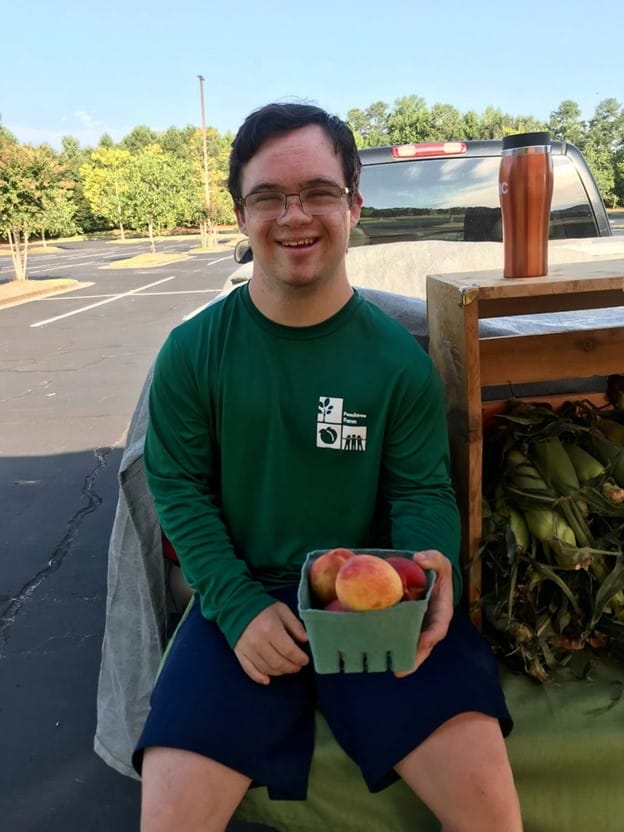
Members of the Gwinnett County Farm Bureau and the Georgia Farm Bureau also visited Peachtree Farm in June to learn more about its operations and areas for possible collaboration.
Congresswoman Lucy McBath visited the farm this fall. The farm, located on Research Court, provides an inclusive and accessible community fostering the social, emotional and physical health and wellness of adults with disabilities.
Peachtree Farm first opened in 2021 to create jobs for those with intellectual and developmental disabilities.
In April, professional cyclists descended on Technology Parkway participating in the Curiosity Lab Criterium, a series of races on the streets of Peachtree Corners within the living laboratory environment of Curiosity Lab.
In May, North American Properties broke ground on The Forum redevelopment project, a great relief as there had been concerns about how to best generate more activity at the 20-year-old center.
North American Properties is redeveloping and revitalizing the property, adding a boutique hotel, food hall, open green spaces, new retail spaces and 381 apartments.
A 300-space parking deck will be constructed near Belk to allow for some parking to be reconstructed as open green space. Several new stores and restaurants have opened or are opening at The Forum, including Peche, lululemon and High Country Outfitters as well ass Petfolk Veterinarian clinic.
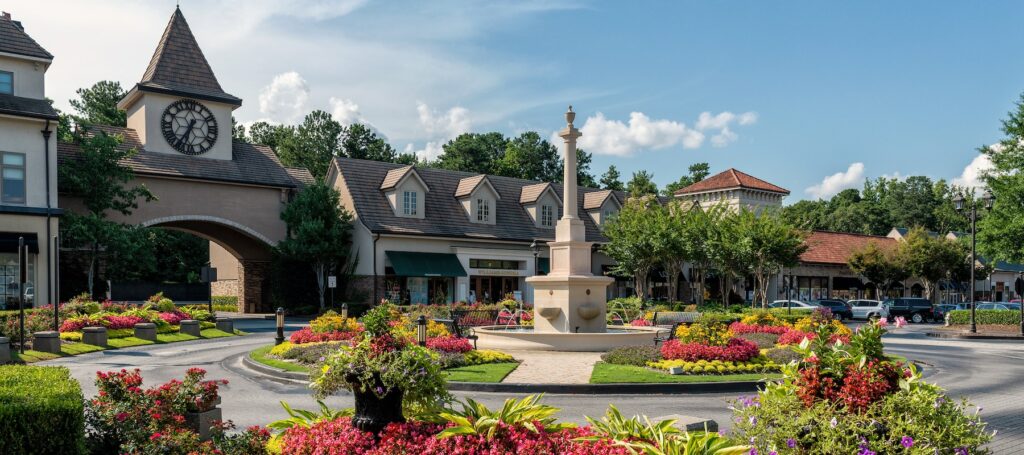
Politan Row will open at the Forum, part of the multi-million dollar renovation project by North American Properties. Politan Row, which has locations at Colony Square in Atlanta, as well as Houston and Chicago, will include seven independently owned restaurant spaces, a full bar, an outdoor patio along greenspace and a standalone restaurant and wine bar.
The German American Chamber of Commerce visited Curiosity Lab in May to learn more about Georgia, Gwinnett County and specifically Peachtree Corners. Also, a delegation of energy, technology and sustainability leaders visited the City of Peachtree Corners in October for several days, learning about area companies, Curiosity Lab and about how the city developed.
This year, Seoul Robotics established its United States office in Curiosity Lab at Peachtree Corners. The company’s presence in Curiosity Lab is fueling further development of a groundbreaking 3D perception platform.
Also this year, Siemens joined Curiosity Lab to support bringing 5G charging and electrification solutions to the United States.
Soliant, a leading provider of specialized healthcare and education staffing services, has been hiring hundreds of new employees across five offices in the Southeast. This expansion of approximately 300 people will give Soliant the internal resources to meet the growing nationwide demand for healthcare and education professionals.
Also, in terms of health and wellness, Atlas Behavioral Health opened at 3850 Holcomb Bridge Road while space was outfitted in June at 4941 S Old Peachtree Road for a Fyzical Therapy and Balance Center.
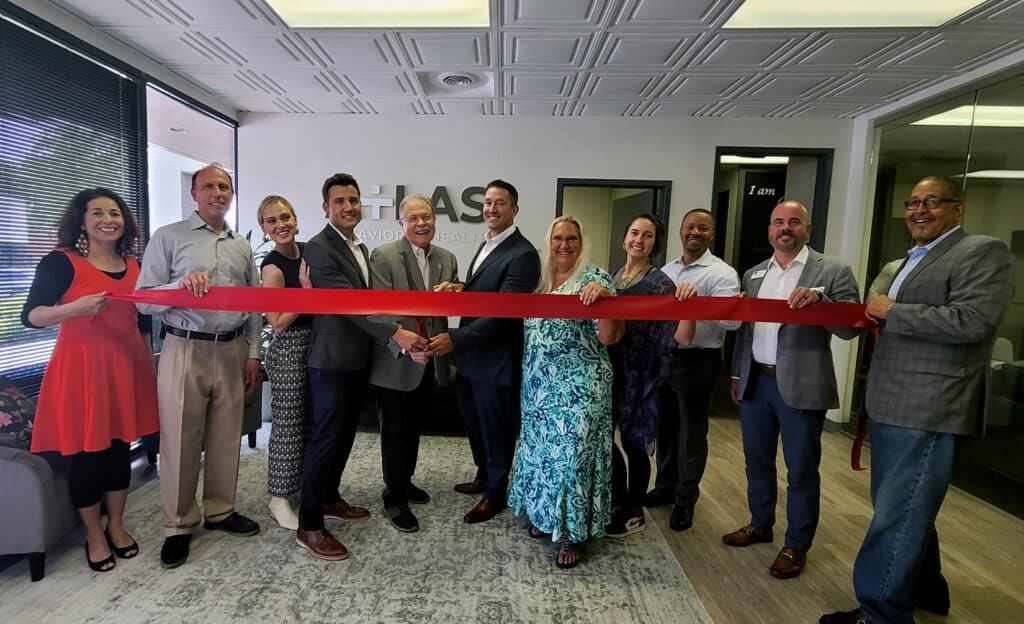
In June, Peachtree Corners was ranked #1 in Georgia and #19 in the nation in this year’s edition of the Fortune 50 Best Places to Live for Families. In August, Peachtree Corners was listed as one of the best places to live in Georgia by Niche.com.
On the environmental front, I can think of a few things coming out of Peachtree Corners this year which will likely help the world.
For example, Sidel, which manufactures packaging (among other things), has introduced a new bottle. Sidel announced a partnership with Coca-Cola Europacific Partners.
The company has been experiencing a great deal of growth and continues to hire more and more people. The bottle, which is for carbonated soft drinks, has a lighter neck and tethered cap. The tethered caps are expected to boost collection and recycling efforts, while preventing litter.
Pond Constructors Inc., Peachtree Corners, was awarded a $13 million modification contract to maintain and repair capitalized petroleum systems and facilities at the Joint Base Pearl Harbor-Hickam, Hawaii.
Also, ASHRAE (the American Society of Heating Refrigerating, and Air Conditioning Engineers) has published a pioneering code-enforceable standard developed to reduce the risk of infectious aerosol transmission in buildings.
There was some other activity in Technology Park as well. Specifically, ASBN Coworks opened at 420 Technology Parkway, in the heart of Tech Park.
DW1, previously known as Discount Waste, Inc., cut the ribbon on its new office at 250 Scientific Drive NW.
A Florida-based investment firm acquired four properties in Technology Park in August, all part of a portfolio selling for roughly $23.8 million.
The second-largest sale in Metro Atlanta that quarter, SF Partners purchased 30, 35 Technology Parkway South and 190 and 192 Technology Parkway from Terracap; a total of 247,208 square feet.
Thank you for reading about some of the impressive business happenings in our city this year. As we gear up for 2024, we looked forward to hearing about more successes, and helping to make sure the city’s businesses continue to grow and thrive.
Happy Holidays!
Mike Mason, Mayor
Related
Read the Digital Edition
Subscribe
Keep Up With Peachtree Corners News
Join our mailing list to receive the latest news and updates from our team.
You have Successfully Subscribed!

April/May Events Going on at Gwinnett County Parks

Enter Our Readers’ Choice Awards 2024

8 Theatrical Performances Coming to the Peachtree Corners Area

North American Properties Secures 3 New Brands for The Forum

Exploring Israeli Innovation in the Smart City Sector with Einav Gabbay [Podcast]

Georgia United Methodist Foundation Announces Changes to Finance Team

North American Properties Revitalizes Avenue East Cobb

BRACK: Peachtree Corners to lose Peterbrooke Chocolatier

BRACK: Peachtree Corners to lose Peterbrooke Chocolatier

Georgia United Methodist Foundation Announces Changes to Finance Team

North American Properties Revitalizes Avenue East Cobb

Exploring Israeli Innovation in the Smart City Sector with Einav Gabbay [Podcast]

North American Properties Secures 3 New Brands for The Forum

April/May Events Going on at Gwinnett County Parks

8 Theatrical Performances Coming to the Peachtree Corners Area

Enter Our Readers’ Choice Awards 2024

Light up the Corners [Video]

Capitalist Sage: Business Leadership in Your Community [Podcast]

Cliff Bramble: A Culinary Adventure through Italy

Top 10 Brunch Places in Gwinnett County

A Hunger for Hospitality

THE CORNERS EPISODE 3 – BLAXICAN PART 1

Top 10 Indoor Things To Do This Winter

The ED Hour: What it takes to Remove Barriers from Education
Peachtree Corners Life
Topics and Categories
Trending
-
Podcast1 week ago
Exploring Israeli Innovation in the Smart City Sector with Einav Gabbay [Podcast]
-
Faith7 days ago
Georgia United Methodist Foundation Announces Changes to Finance Team
-
Business7 days ago
North American Properties Revitalizes Avenue East Cobb
-
Business4 days ago
BRACK: Peachtree Corners to lose Peterbrooke Chocolatier








